Social media has become such a part of our lives that we can barely remember what the Internet was like before Facebook, Twitter, Instagram, Tumblr, and the rest. However, research has linked social media with all kinds of problems, from bullying to depression. The photo sharing and the ubiquitous profile photo has a large influence on female body image. In fact, young women are more likely to compare themselves to their peers’ images on social media than celebrities and models in advertisements. People report increased feelings of guilt and shame when seeing friends’ images on Facebook (Ratcliffe, 2017). This extends beyond body image. Vacation photos and other images of friends having fun while you are at home scrolling through Facebook, Tumblr, or whatever social media you prefer can make you feel as if you are not doing anything with your life. In turn, this can make you feel more isolated and depressed.
Most photos people share on social media are tweaked in one way or another. Around 70% of women ages 18-35 edit their photos before posting them to social media; 50% of men in the same age group do the same (Ratcliffe, 2017). Most of us know photos are tweaked and designed, but that doesn’t stop us from wondering what we are missing. As we sit in our pajamas, the airbrushed photos of friends can also make us more aware of how we don’t measure against standards of beauty. Kawaii culture photos create a special problem for both men and women as we will examine. Interestingly, 65% of teen girls and 40% of adults report selfies and other flattering photos of themselves make them feel more confident (Common, 2015).
They may feel more confident, but the photos they share are usually tweaked by Photoshop or Meitu or some other app. But is this really confidence? Airbrushed photos attempt to convey an idealized version of yourself rather than the real you. Likewise, you can engineer your social media feeds to appear as if you are always active–vacationing and living an exciting life–when you spend most of your time doing what we all do: work and go home. Image editing apps bring to question people’s online authenticity. NHK’s Kawaii International featured an example of how an app can alter a person’s appearance into one of these kawaii Asian models you find on otaku feeds.
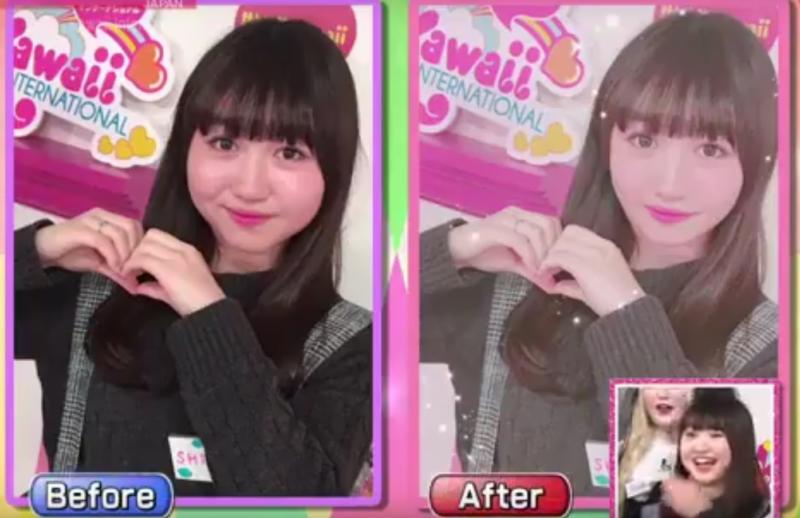 Apps like Meitu easily alter photos in ways that used to take several hours of work in Photoshop to achieve. In the above example, the app softens the woman’s skin tone and thins her face. Her hair color is changed to match the brown tones popular in Japanese fashion. In short, she looks completely different. It’s not unusual for people to use makeup to create a character of themselves for social media. I can’t deny this takes a great amount of skill, and many, like the example below, enhance their natural features to achieve their kawaii style. There’s nothing wrong with this except when it leans too heavily on digital alterations in addition to makeup. Digital alternations shift ideas of beauty into the unattainable. This also extends toward male ideas of beauty. Remember, 50% of young men also digitally enhance their images.
Apps like Meitu easily alter photos in ways that used to take several hours of work in Photoshop to achieve. In the above example, the app softens the woman’s skin tone and thins her face. Her hair color is changed to match the brown tones popular in Japanese fashion. In short, she looks completely different. It’s not unusual for people to use makeup to create a character of themselves for social media. I can’t deny this takes a great amount of skill, and many, like the example below, enhance their natural features to achieve their kawaii style. There’s nothing wrong with this except when it leans too heavily on digital alterations in addition to makeup. Digital alternations shift ideas of beauty into the unattainable. This also extends toward male ideas of beauty. Remember, 50% of young men also digitally enhance their images. 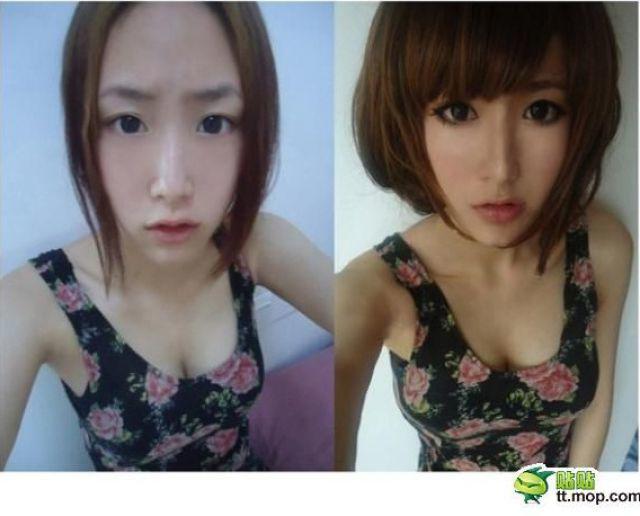 Kawaii style often needs digital manipulation to achieve the look. Many Asian women don’t naturally have the large, open eyes kawaii emphasizes. Again, that’s where apps like Meitu come in. Of course, makeup and well-placed tape can also achieve the effect. While kawaii fashion isn’t wrong of itself, it can create expectations reality cannot match. Otaku culture does emphasize fantasy. However, it can create wrong expectations. I’ve seen online discussions where otaku guys accuse women of false advertising on their social media because of the doctored photographs. Yet, these same guys are attracted to an appearance that few women can naturally achieve, if any at all. It creates a disconnect between reality and expectations. Let me be clear. I am not blaming ladies who enjoy kawaii fashion or makeup. If anything, I assign responsibility to the men for consuming so many images that their perspective of beauty shifts beyond what is possible without digital manipulation. But this shows how body image is a dynamic between and within subcultures and genders. Many ladies alter their photos because its something they enjoy, but this can create unintentional body image consequences for other young women. The solution involves education and mindfulness and limiting social media consumption. People need to realize these images and social media profiles are manufactured, and this realization will help curb the body image problems to limited degree. Limiting social media consumption helps reduce feelings of inadequacy and feelings of competition.
Kawaii style often needs digital manipulation to achieve the look. Many Asian women don’t naturally have the large, open eyes kawaii emphasizes. Again, that’s where apps like Meitu come in. Of course, makeup and well-placed tape can also achieve the effect. While kawaii fashion isn’t wrong of itself, it can create expectations reality cannot match. Otaku culture does emphasize fantasy. However, it can create wrong expectations. I’ve seen online discussions where otaku guys accuse women of false advertising on their social media because of the doctored photographs. Yet, these same guys are attracted to an appearance that few women can naturally achieve, if any at all. It creates a disconnect between reality and expectations. Let me be clear. I am not blaming ladies who enjoy kawaii fashion or makeup. If anything, I assign responsibility to the men for consuming so many images that their perspective of beauty shifts beyond what is possible without digital manipulation. But this shows how body image is a dynamic between and within subcultures and genders. Many ladies alter their photos because its something they enjoy, but this can create unintentional body image consequences for other young women. The solution involves education and mindfulness and limiting social media consumption. People need to realize these images and social media profiles are manufactured, and this realization will help curb the body image problems to limited degree. Limiting social media consumption helps reduce feelings of inadequacy and feelings of competition.
Body image is a complicated perception. Men suffer from body image problems at least as much as women. Body image begins to form when children are between 5-7 years old, and these children are effected by the messages around them (Common, 2015):
- As many as 1/3 of children age 5-6 years choose an ideal body size that is thinner than their current perceived size.
- 26% of 5-year-olds recommend some type of diet behavior (not eating junk food, eating less) as a way to lose weight.
- 1 in 4 children have dieted in some way by the time they are 7 years old.
- Parent’s body dissatisfaction influences children.
Media, parents, and peers shape our perceptions of ourselves, which is why social media poses a problem to adult body image too. However, it can offer positive influence. Photos showing before and after makeup can show people how they can accent their natural features to match what’s considered kawaii.

Considering the affects of body image messages on children and on adults, it becomes a matter of ethics. A manufactured profile that never reveals what goes on inside the box can do more harm than good. At its most basic level, such social media lies. Now, dressing kawaii and applying makeup isn’t lying as many men online will say. But putting forth only a certain persona and not making it clear that it is, indeed, a persona can cause damage people’s body images and confidence. Of course, consumers of social media also carry responsibilities. If a certain fashion profile makes you feel depressed or troubled, you should unfollow them or learn the techniques behind the profile. Social media consumers need to be mindful of comparing themselves to their friends. It’s hard. I fall into the trap too. I see friends traveling and doing this or that while I cannot because of my responsibilities and job and personality. If I would drop everything to travel on credit as I’ve known some to do, I would feel irresponsible and wouldn’t be able to enjoy myself. Whenever you see something on social media that makes you envious, step back and examine it in light of your personality. You’ll likely see how you are better off not trying to “keep up with the Joneses.”
The editing photos and manufacturing social media feeds won’t suddenly disappear, but that only makes it more important for all of us to stop comparing ourselves to what isn’t reality. If social media doesn’t benefit you, if it makes you feel inadequate or depressed, consider unplugging. Social media isn’t a necessity. In fact, you’ll find you suddenly have time for hobbies, friends, and other activities when you put away your phone and not fake life though its screen.
References
Common Sense Media (2015) Children, Teens, Media and Body Image.
Ng, Alfred (2017) What is Meitu? The kawaii anime makeover app goes virals. CNET https://www.cnet.com/news/what-is-meitu-kawaii-anime-makeover-app-goes-viral/
Ratcliffe, Rebecca (2017) Friends pictures on social media have biggest impact on body image. The Guardian. https://www.theguardian.com/society/2017/mar/05/friends-pictures-on-social-media-biggest-impact-body-image
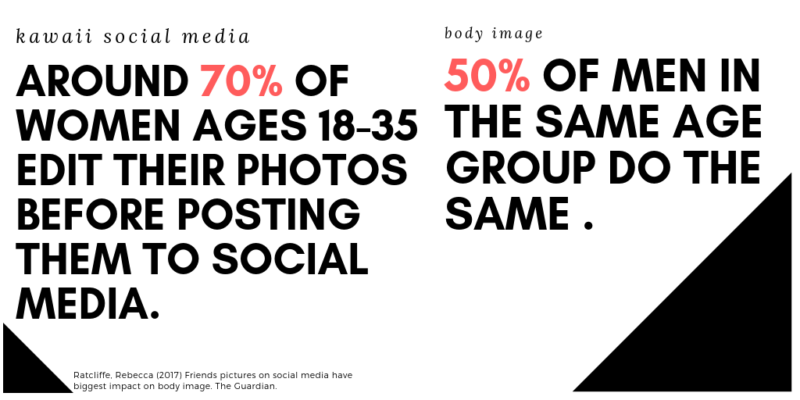
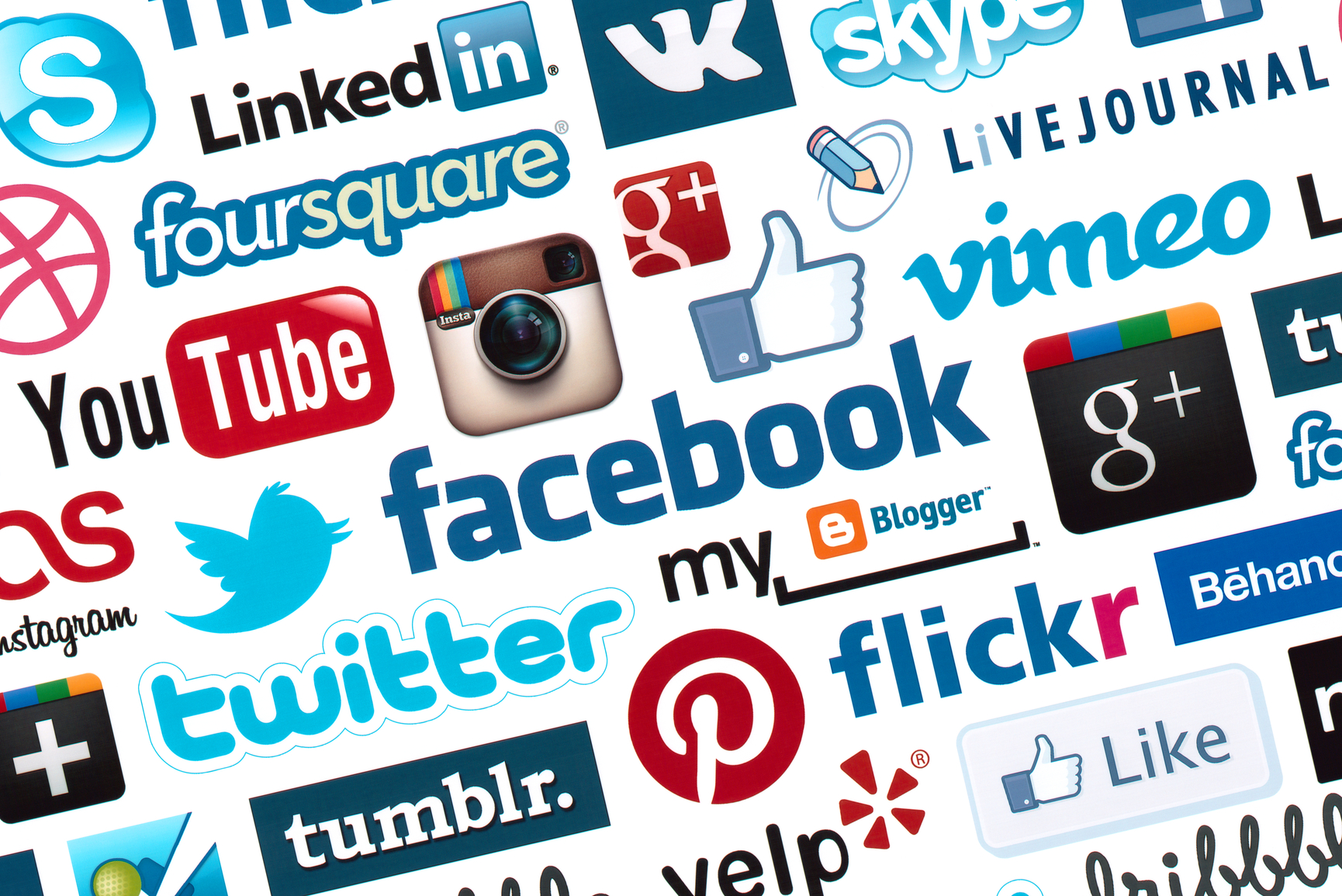
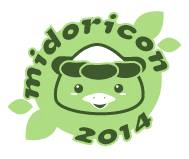

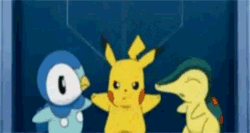
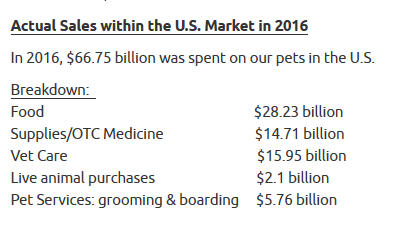
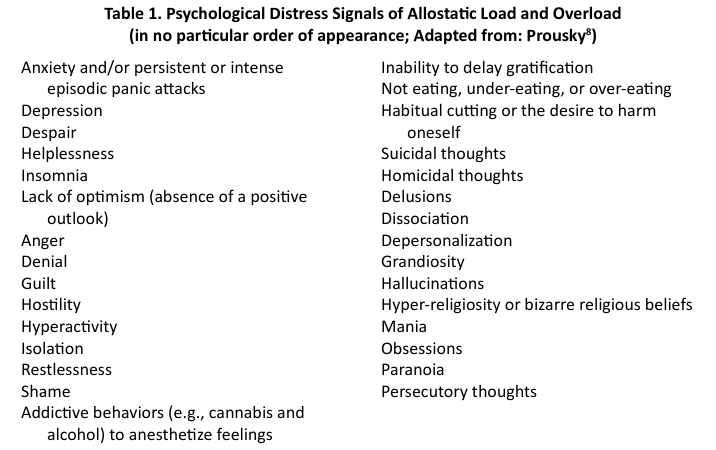
This is kinda unrelated, but do you think that social media also promotes the need to act kawaii in one’s everyday life, to the point that people start doing so unconsciously? (not limited to clothing and body image)
Have you heard of the cinderella weight trend?
Yes, it seems to. Personas can become personality if we live in them enough.
That’s a new one on me. What is it?
Sorry for the late reply!
It’s a beauty standard which has gained popularity on social media. Women are encouraged to aim for a BMI of around 18. The cinderella weight is calculated by squaring the height (in metres) and then multiplying the result by 18. Of course, that can be unhealthy, depending on the person. According to SoraNews, that’s even lighter than the recommended weight in Japan, a country where slim is already regarded as beautiful for women.
I am naturally underweight (I have never even attempted to diet in my life and I make efforts to eat more) but I am also perfectly healthy. The problem arises when some girls who try too hard to reach this ideal weight might take their diet too far and compromise their health.
I see. There’s a lot of arbitrary weight calculations that disregard skeletal structure and how weight is carried.
Great article. I understood this to a degree back in the mid-80’s when I lost so much weight to fit into a Japanese M size in an attempt to stay younger and be considered kawaii. This is not good for women. It is not good for girls. And, ultimately it panders to pedophiles.
Body image issues have a long history, unfortunately, for both genders. Male body image problems remain under reported.